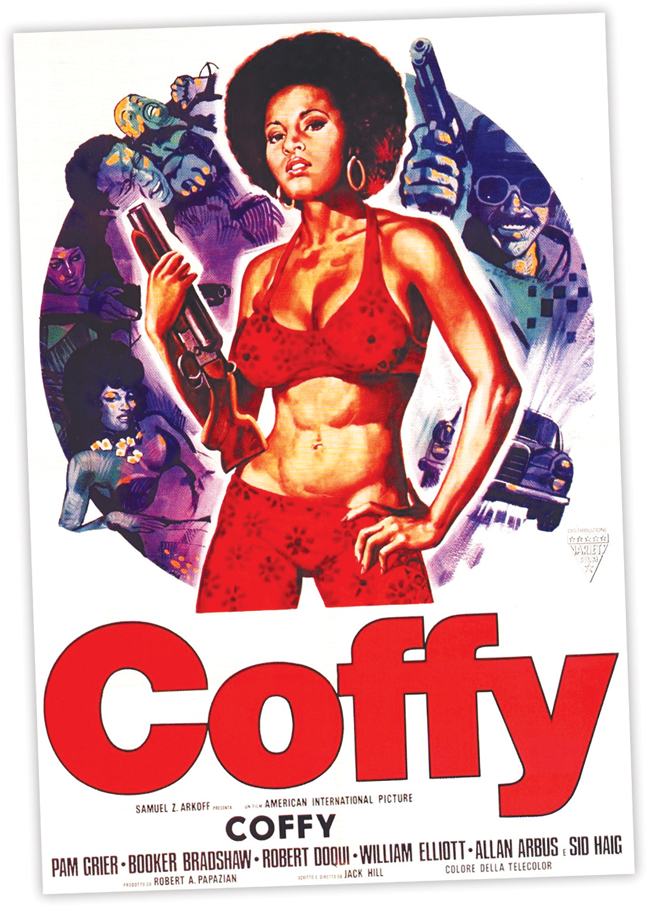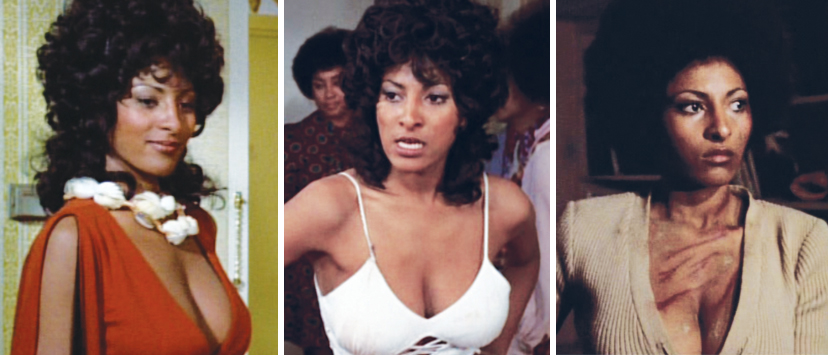
The baddest one-chick hit squad that ever hit town!
New on Blu-ray ($29.95, Olive Films)
By Mark Voger, author, “Monster Mash: The Creepy, Kooky Monster Craze in America 1957-1972″
The 1973 blaxploitation classic “Coffy” — which catapulted Pam Grier into movie stardom (and into the fantasies of a million fanboys) — has a special something not found in every film of this grooovy genre.
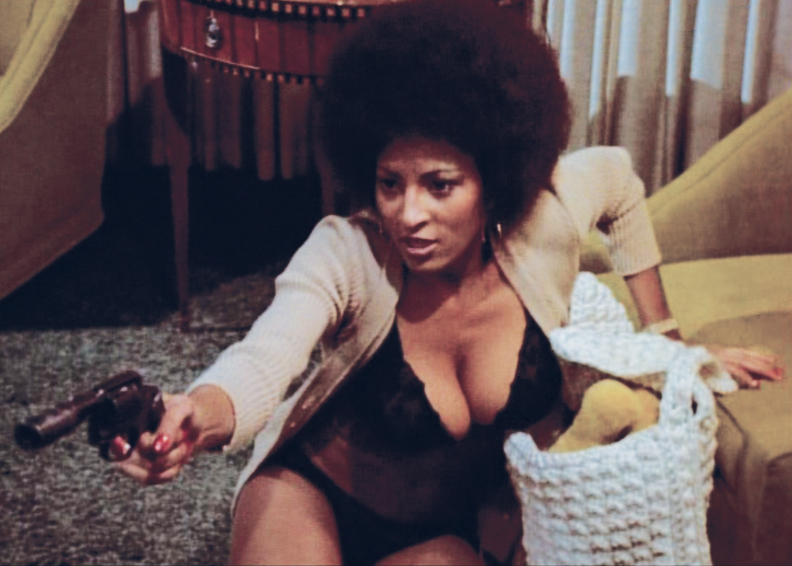
I know what you’re thinking. It has Pam Grier naked. Frequently.
That’s not it, though it helps immeasurably.
Grier’s from-the-hip portrayal of a woman in a dreamlike state navigating a dangerous world of pushers and pimps rises above the B-movie milieu. American International Pictures’ “Coffy” is, at heart, a low-budget revenge movie, but one with a protagonist you cannot take your eyes off of. When Coffy is thrust into her many fight-or-flight situations, and her survival is in question, you can sense her wheels turning. She fights back with whatever she can get her hands on — a razor, a rock, a stolen car, a hairpin. And she wins.
And, yeah, Grier looks good doing it. Her build is singular. She is tall and lanky yet busty, and moves with the strange, assured grace of a tomboy. Grier wears clothes well and — pardon my lechiness — she also wears no clothes well.
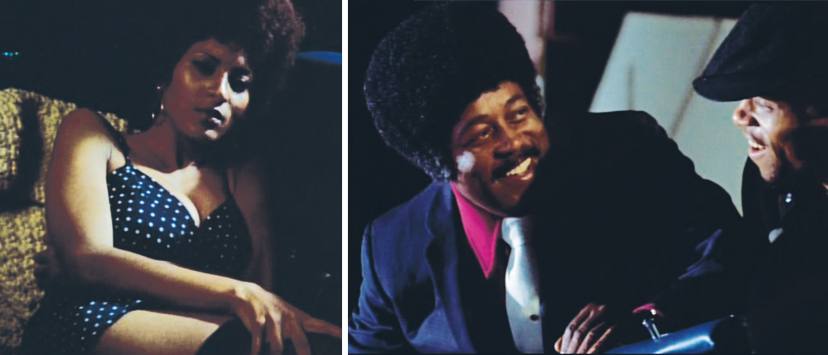
Plot: Flower Child “Coffy” Coffin — as improbably a character name as you’ll find in any movie — is a night-shift nurse leading a double-life. When her kid sister O.D.’s — the girl is alive, but zombie-fied — Coffy turns vigilante. Posing as a junkie willing to trade sex for a fix, she sets up the low-leverl pushers (Morris Buchanan and Mwako Cumbka) who supplied her sister with the dope.
“This is the end of your rotten life!” Coffy says, her shotgun trained on the baddie in the lavender underwear who thought he was gettin’ some.
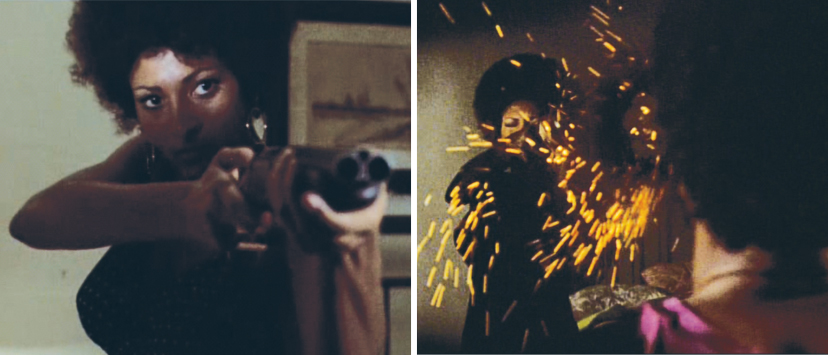
Meanwhile, in her actual life, Coffy has two suitors. Howard (Booker Bradshaw) is a slick operator with a black Corvette, a beach house and political aspirations. He’s the one Coffy sleeps with. Carter (William Elliott) is a nice-guy cop who promises protection and a degree of normalcy. Coffy listens to his romantic pitches, but only gives him pleasant company, not nookie.
Her love life is good, but Coffy is on edge. She’s been having PTS flashbacks of her first two kills. She asks Carter: “Have you done something when you were mad — I mean really mad — that it was like being in a dream? Like being up on the ceiling, looking down on somebody?”
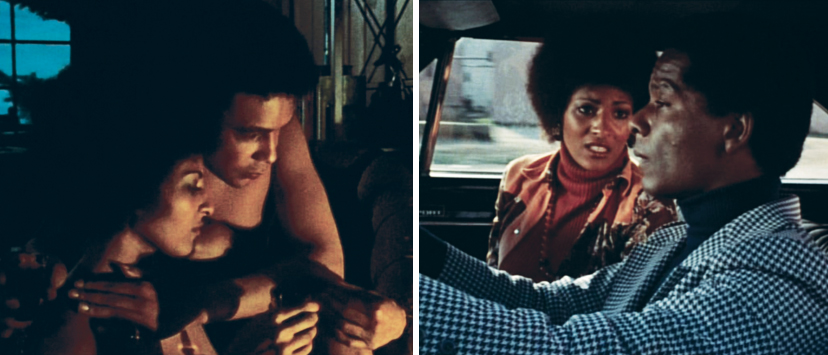
Before Carter can answer, two masked goons burst in and pummel him. The incorruptible Carter, alas, won’t play ball with the syndicate. As a bonus, one of the thugs — a scary guy with a pockmarked face named Omar (Sid Haig) — rips open Coffy’s blouse, removes one of his gloves and cops a feel. He will live to regret it.
With Carter on life support, Coffy is determined to move up the ladder and eliminate the source of the problem: the dope suppliers. How to accomplish this? Since every man wants Coffy’s body, she might as well use it to trap the bad guys.
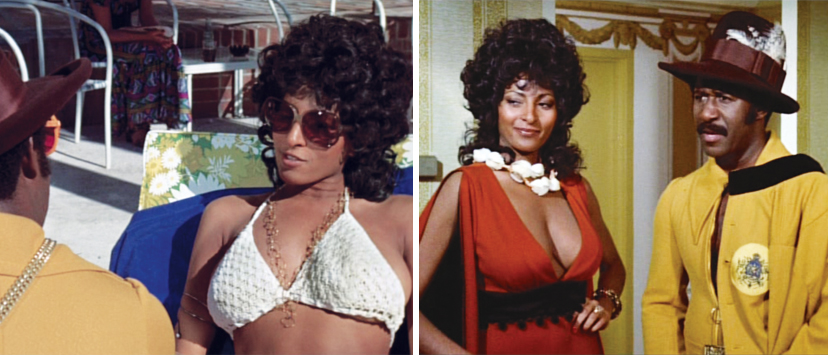
This becomes her modus operandi. When Coffy learns that big boss Vitroni (Alan Arbus) is a sucker for exotic foreign babes, and Vitroni’s women are procured by super-fly pimp King George (Robert DoQui), she poses as Mystique, a Jamaican beauty, and lures King into a poolside negotiation. (Grier’s accent is dreadful; she pretty much just adds “mon” to the end of every sentence.)
King George “tries out” Coffy before admitting her to his stable — he’s a conscientious super-fly pimp — but he eventually pays a price; the “necktie” Omar later puts on King comes courtesy of a brilliant feint by our heroine.
Coffy has also learned that Vitroni gets off on black girls crawling in his presence while he spits on them. During their pre-arranged liaison, she briefly accommodates him, just before extracting a gun from her pocketbook. (Trivia: Arbus played a recurring role on “M*A*S*H” as a pragmatic psychologist.)
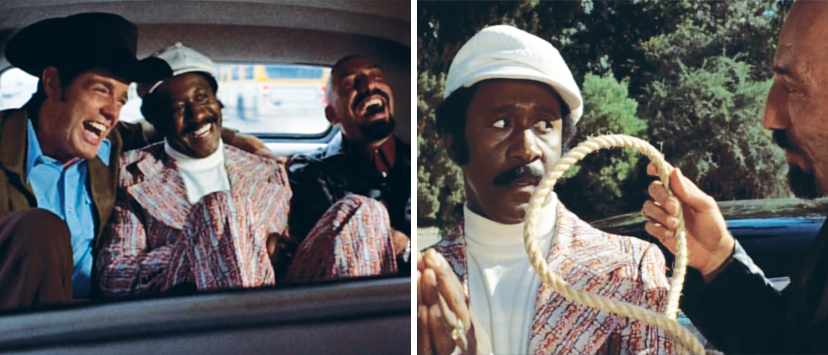
When her murder at the hands of Omar seems imminent, she proposes a final fling before dying. Omar: “I just want you to know that personally, I think it’s a damn shame to let a good piece like you go to waste.” Coffy: “Thanks, I do too, especially when I think of all the fun I could’ve had with a good-lookin’ stud like you.” It’s an offer Omar can’t refuse. Guess who dies?
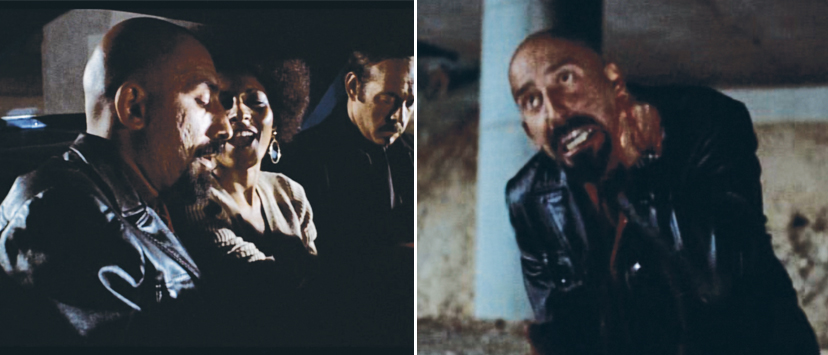
Hey, look, “Coffy” was never going to win the endorsement of Gloria Steinem. But with this film, Pam Grier established herself as the movies’ first sustainable, bankable black female star. (Can you name another such actress prior to 1973?)
Writer/director Jack Hill’s idea was to make Flower Child Coffin a regular woman — not a martial arts expert, not a tactician, not a deadshot. And why would a regular woman do all of these dangerous things? Hill’s solution is to put Coffy in that dreamlike state. It’s B-movie logic that, in its own universe, works.
Hill is also a shrewd instigator of screen violence that doesn’t feel gratuitous. (There’s much of Hill in Quentin Tarantino’s oeuvre — something the younger filmmaker freely admits.)
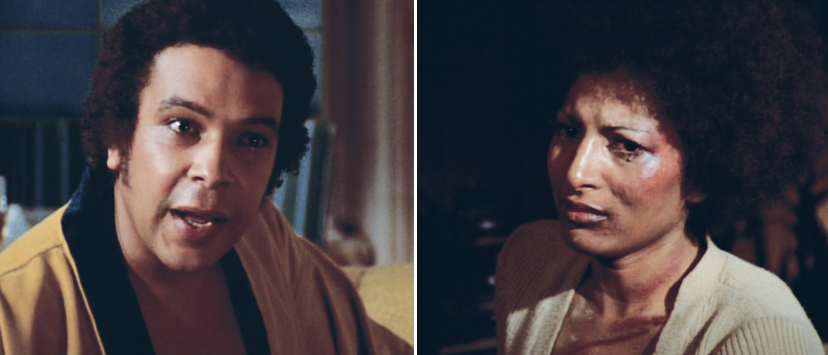
“Coffy” sometimes vacillates between “Walking Tall”-level cruelty and Three Stooges-esque slapstick. When Omar eradicates King George, it is hard to watch, even in 2015. (It’s also extremely ballsy of Hill and American International, considering that Omar’s method of eradication smacks of the lynch mobs of old.) On the other hand, when Coffy takes on a roomful of hookers at a john party – blouses are ripped, food goes flying – there are “doink!” sound effects that would make Jules White proud.
Still, there is authentic emotion. When Grier cries real tears in her final scene with Bradshaw, it is her finest onscreen acting moment — until her tour-de-force in Tarantino’s “Jackie Brown” (1997). This is something that Grier, despite her apparent discomfort with her blaxploitation past, would have to admit: “Coffy” was a giant step in the journey that led to “Jackie.”
